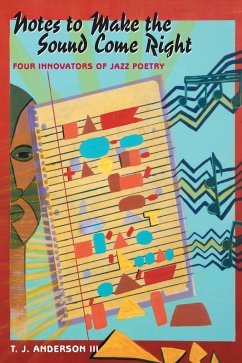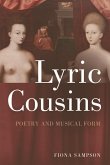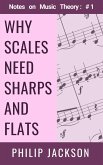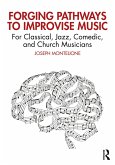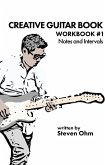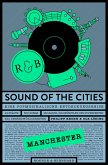In "e;When Malindy Sings"e; the great African American poet Paul Laurence Dunbar writes about the power of African American music, the "e;notes to make the sound come right."e; In this book T. J. Anderson III, son of the brilliant composer, Thomas Anderson Jr., asserts that jazz became in the twentieth century not only a way of revising old musical forms, such as the spiritual and work song, but also a way of examining the African American social and cultural experience. He traces the growing history of jazz poetry and examines the work of four innovative and critically acclaimed African American poets whose work is informed by a jazz aesthetic: Stephen Jonas (1925?-1970) and the unjustly overlooked Bob Kaufman (1925-1986), who have affinities with Beat poetry; Jayne Cortez (1936- ), whose work is rooted in surrealism; and the difficult and demanding Nathaniel Mackey (1947- ), who has links to the language writers. Each fashioned a significant and vibrant body of work that employs several of the key elements of jazz. Anderson shows that through their use of complex musical and narrative weaves these poets incorporate both the tonal and performative structures of jazz and create work that articulates the African journey. From improvisation to polyrhythm, they crafted a unique poetics that expresses a profound debt to African American culture, one that highlights the crucial connection between music and literary production and links them to such contemporary writers as Michael Harper, Amiri Baraka, and Yusef Komunyakaa, as well as young recording artists-United Future Organization, Us3, and Groove Collection-who have successfully merged hip-hop poetry and jazz.
Dieser Download kann aus rechtlichen Gründen nur mit Rechnungsadresse in A, B, BG, CY, CZ, D, DK, EW, E, FIN, F, GR, HR, H, IRL, I, LT, L, LR, M, NL, PL, P, R, S, SLO, SK ausgeliefert werden.

